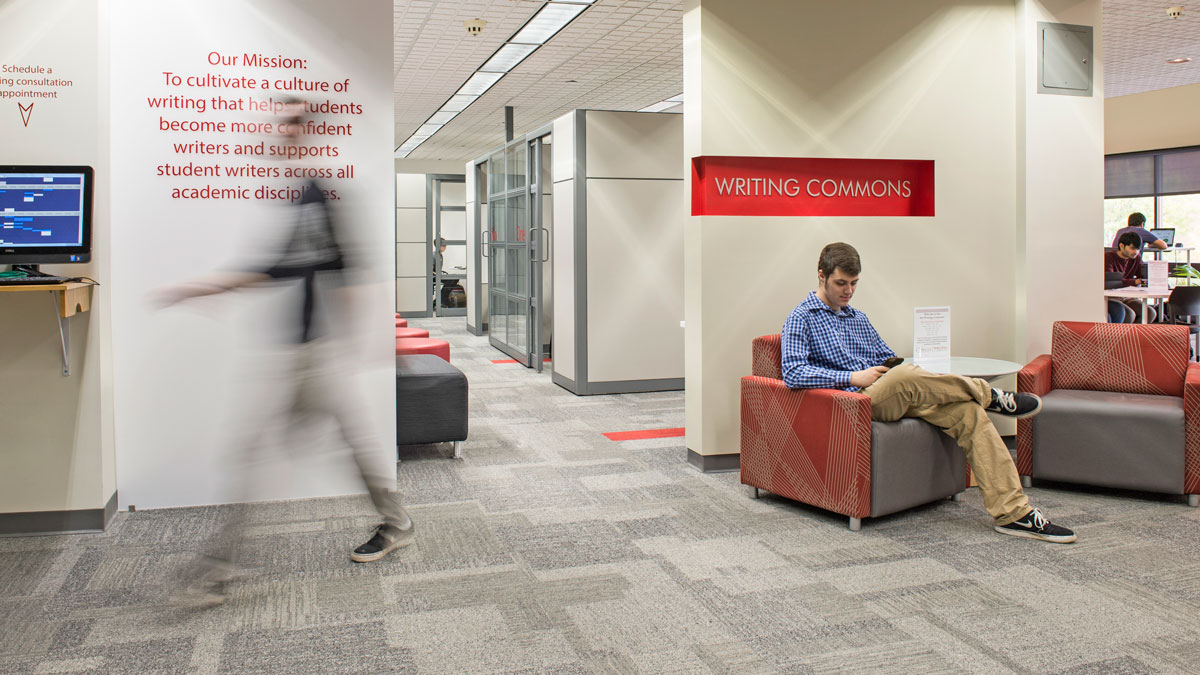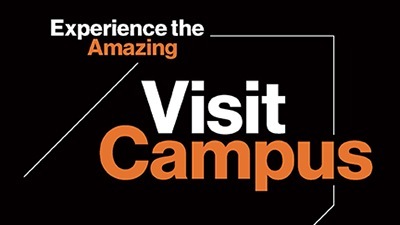Pre-Baccalaureate Studies in Liberal Arts

Pre-Baccalaureate Studies in Liberal Arts
- RIT /
- National Technical Institute for the Deaf /
- Academics /
- Pre-Baccalaureate Studies in Liberal Arts
Prepare for college success with foundational liberal arts courses designed to strengthen academic readiness and critical thinking.
Overview for Pre-Baccalaureate Studies in Liberal Arts
The pre-baccalaureate studies program is available to students who are accepted by NTID and are close to direct entry into a baccalaureate-level program through one of the other colleges of RIT. It is a bridge program for qualified students, based on academic transcripts, scores on admissions tests, and other evidence that supports a reasonable expectation of success in baccalaureate course work. Qualified students who are undecided as to a program of study may choose the career exploration studies program.
Enrollment in the pre-baccalaureate studies program is appropriate for students who need to further develop mathematics, English, or discipline-related skills. The academic program is flexible and individualized and allows students to focus on needed skills while concurrently progressing toward their chosen field of study. Students may take courses taught by NTID faculty, as well as entry-level courses taught in other RIT colleges. While in the program, students receive academic advising as well as career counseling.
Students cannot receive a degree in pre-baccalaureate studies. Rather, they will apply for admission into a baccalaureate program as soon as they are academically ready and the college offering their chosen baccalaureate program reviews their application for admission. After completing an entire academic year in the program, a student must transfer to a degree-granting program in NTID or one of the other colleges of RIT.
-
Apply for Fall 2026
First-year students can apply for Early Decision II by Jan. 1 to get an admissions and financial aid assessment by mid-January.
Curriculum for 2025-2026 for Pre-Baccalaureate Studies in Liberal Arts
Current Students: See Curriculum Requirements
Admissions and Financial Aid
Specific English, and Mathematics Requirements and other Recommendations
Students entering pre-baccalaureate studies in liberal studies will typically be required to have:
- English: Placement into Critical Reading and Writing (UWRT-100)
- Mathematics: Placement into the NTID Advanced Mathematics (NMTH-275) course or higher
- ACT (optional): The ACT middle 50% composite score is 18-21 with a reading score of 20 and all other skill area scores of 18 or higher.
Financial Aid and Scholarships
100% of all incoming first-year and transfer students receive aid.
RIT’s personalized and comprehensive financial aid program includes scholarships, grants, loans, and campus employment programs. When all these are put to work, your actual cost may be much lower than the published estimated cost of attendance.
Learn more about financial aid and scholarships
Accreditation
Contact
- Kathryn Schmitz
- Department Chair
- National Technical Institute for the Deaf
- 585‑475‑2906
- kls4344@ntid.rit.edu
Department of Liberal Studies






